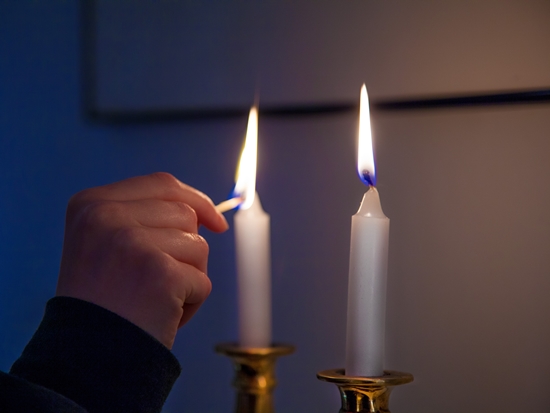This week’s parshah (Torah portion) primarily deals with the construction of the Mishkan (Tabernacle), as the Torah gives extreme detail of its architecture and design. Commentaries offer much depth behind the repetitive nature of these pesukim (verses); the only other parallel we have in the Torah of this much seemingly extraneous information being presented would be the story of Eliezer searching, and ultimately finding, a wife for Yitzhak (Isaac) – Rivkah (Rebecca).
However, puzzlingly, as a preamble to the entire topic of the Mishkan, the Torah writes [Shemot 35’ 1’-2’]:
Moses then convoked the whole Israelite community and said to them: These are the things that G-d has commanded you to do:
On six days work may be done, but on the seventh day you shall have a sabbath of complete rest, holy to G-d; whoever does any work on it shall be put to death.
Rashi offers that the reason why the Torah reiterates the commandment to keep the Shabbat (Sabbath) here is to extinguish any notion of the importance of the building the Mishkan superseding the obligation to guard the Shabbat. Despite the great holiness associated with the construction of the Tabernacle, Shabbat was not to be violated in order to hasten its creation.
The commentary of the great Ohr Hachaim posits differently, however. He asserts, that the Jews had recently sinned greatly in the arena of idol worship by creating the Golden Calf [see Shemot Chap. 32], and the Talmud [Horiyot 8A] writes that the sin of idol worship is akin to violating the entire Torah [as the premise and foundation of the Torah is the belief in the G-d who gave us the Torah at Sinai; any corruption of that tenet undermines the foundation of the totality of the Torah]. Therefore, in order to pave the way for the Jews to merit having G-d openly present in their midst through the creation of a Tabernacle, the Jews needed to rectify the blemish of basically having nullified their connection to the entire Torah through idol worship. The antidote to that sin was the commandment to keep Shabbat, as the Talmud states [Shabbat 118B] that even one who violated committed idolatry in of the worst conceivable fashions can earn forgiveness for their sin through guarding Shabbat properly. Hence, according to Ohr Hachaim, the commandment to keep Shabbat is not given here to warn against its violation in pursuit of building the Tabernacle – rather, the mitzvah (Torah commandment) to keep Shabbat is in fact the vehicle through which the Mishkan would be built!
Rokeach [1200 CE] offers an allusion to this as well, for over here, the Torah writes 40 words in total regarding the mitzvah to keep Shabbat – and the Torah was supposed to be given on the 40th day, until the Jews worshiped the golden calf on day 39 – and there are 39 primary forms of labors that are forbidden on Shabbat!
It appears to the author of this article however, that perhaps, the placement of the commandment to keep the Shabbat before the detailed construction of the Mishkan begins is designed to hint at the true Temple of the Jewish people – for after thousands of years of no homeland, no Beit Hamikdash (Holy Temple), exile and persecution, our national identity in the metaphysical sense has been the mitzvah of Shabbat: it warms the heart and soul of the Jewish people like no other. (Perhaps, that is why, when nations have decided to persecute our religion, often, the first target is the observance of Shabbat.)
May we merit the coming of the Messiah speedily in our days, where we can bask the holy light of Shabbat together in our homeland, speedily in our days.
